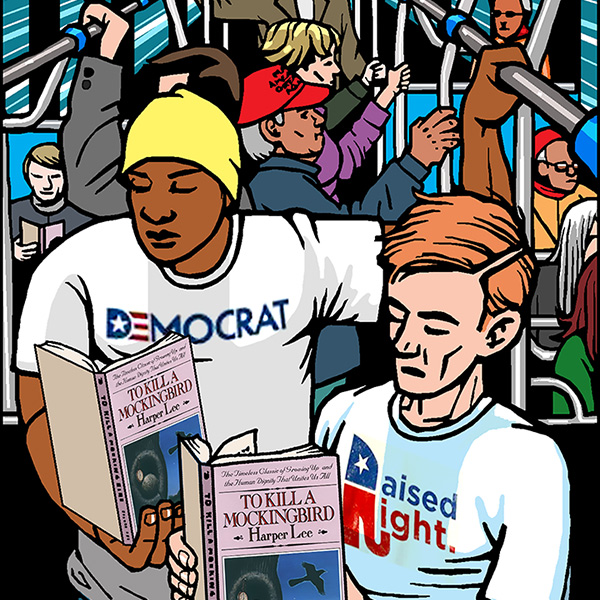In these polarizing times, can liberals and conservatives agree on anything?
According to a recent study co-authored by Andrew Piper, the director of txtLAB, a digital humanities laboratory at McGill, books may be the answer.
The study analyzed the virtual bookshelves of 27,000 users of the Amazon-owned book site Goodreads. First, the researchers determined the political leaning of each user based on whether they had given a positive score to a book selected from a list of highly partisan non-fiction selections. Then, they looked for fiction books that appeared on both conservative and liberal bookshelves.
“Bridge books are ones that seem to not drive readership by political viewpoint,” says Piper. “What’s interesting to us is those books are different in nature amongst themselves. There were classics like To Kill A Mockingbird or 1984, but in other cases it was currently popular books or 19th century fiction.” Jane Eyre and Frankenstein both turned up on the list. So did Stephen King’s 11/22/63.
“When conservatives or liberals talk about 1984 and To Kill A Mockingbird, they use less divisive language than when they talk about partisan books,” says Piper.
Can reading these books make a person less partisan? The study didn’t reach that conclusion, but Piper believes promoting commonalities can help bring people together.
“It confirms a lot of the beliefs literary scholars have had for a long time, which is that complex works of literature are good for us because they make us think about more complex problems, and they allow us to do so in a less partisan, more hypothetical way.”



